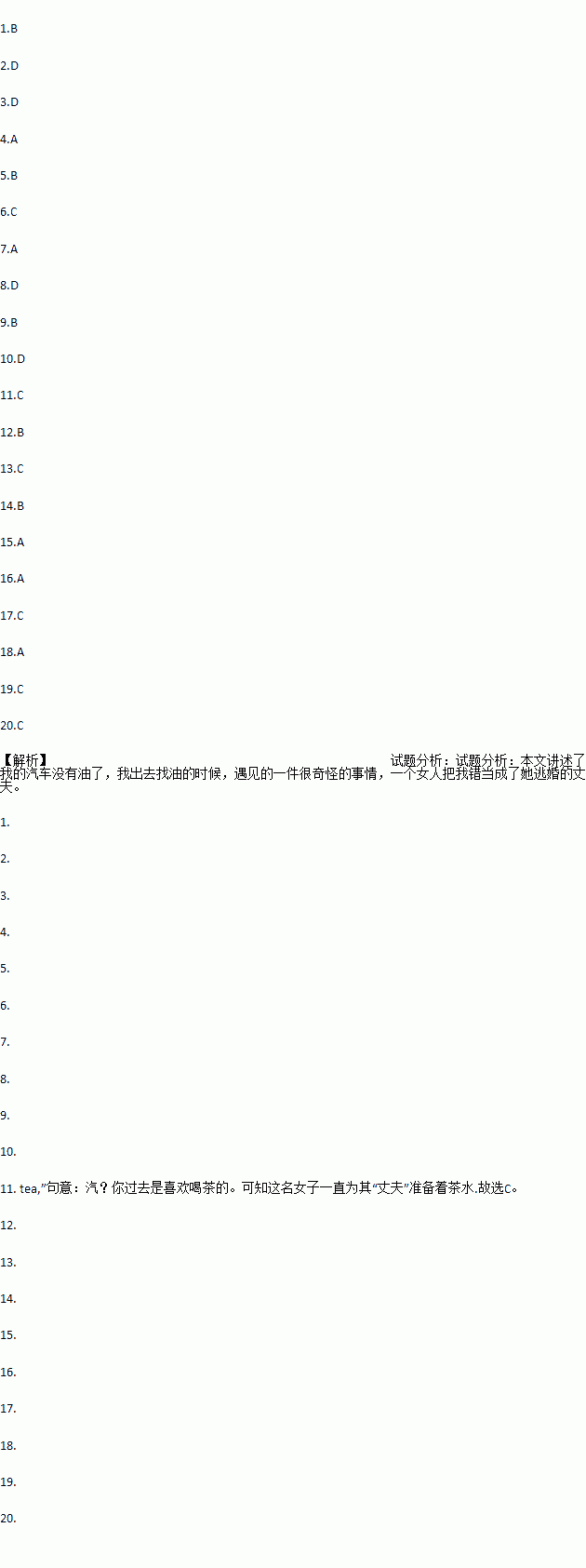题目内容
A _________ thing happened __________ me last Sunday. It was such a beautiful day _________ I drove to go for a look in the country. On the way back home, my _________ stopped. It was out of gas on a _________ road far from a town! I decided to walk until I found someone ________ could sell some gas. I had walked almost a mile ________ I finally found a house near the __________. I was glad to see it because it was getting dark.
I knocked at the door and a little old lady with long white hair ___________. She said, “ I’ve been ___________ for you here for a long time. Come in. __________ is almost ready. “ But I only came for some gas,” I answered. I couldn’t ___________ what she was talking about. “ Oh, Alfred! Gas? You ____________ tea, ” said she. I quickly __________ that my car was out of _________, but she didn’t seem to listen to me. She just kept ____________ me Alfred and talking about how long it had been __________ she had seen me. She was acting very strangely and I was anxious to leave. As soon as she went to get tea, I went out of the house as fast as I __________.
Fortunately, there was another house down the road and I was able to buy the gas I needed. When I told the man about my __________, he said, “ Oh, that’s Miss Emily. She lives by herself in that big house. She’s strange, but she wouldn’t ___________ anybody. She is still waiting for the man she was going to marry thirty years ago. The day before their wedding he left home and never came back because of the war.”
1.A. happy B. strange C. common D. bad
2.A. on B. in C. upon D. to
3.A. and B. so C. but D. that
4.A. car B. bus C. bike D. truck
5.A. narrow B. lonely C. crowded D. busy
6.A. what B. whom C. who D. how
7.A. before B. after C. while D. as
8.A. street B. path C. way D. road
9.A. came B. answered C. opened D. appeared
10.A. asking B. looking C. calling D. waiting
11.A. Gas B. Coffee C. Tea D. Lunch
12.A. consider B. understand C. accept D. think
13.A. like B. love C. used to like D. liking
14.A. answered B. explained C. refused D. promised
15.A. gas B. tea C. strength D. energy
16.A. calling B. call C. to call D. called
17.A. until B. before C. since D. when
18.A. could B. can C. would D. wanted
19.A. accident B. incident C. experience D. surprise
20.A. hit B. injury C. hurt D. frighten
 阅读快车系列答案
阅读快车系列答案

 gold”.
gold”.